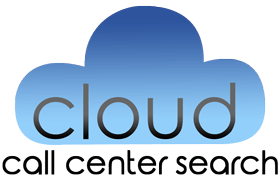8 Keys to Evaluate Your Cloud Contact Center Software Options

Customer experience is all the buzz; after all it is the glue that keeps existing customers coming back and the honey that attracts new ones. According to Forrester Research, companies are increasingly leveraging customer experiences as a differentiator. Their 2015 report goes on to mention that “86% of [survey] respondents stated that quickly changing business processes to better align with customer expectations was their top challenge in their contact center organization.”*
How you evaluate your cloud contact center software solution choice will directly impact the overall customer experience and the quality your team delivers every day. The experience your associates deliver must align with the experience you promise, and if your cloud software solution doesn’t align with that promise, you are likely to fail. From features and functions to reliability and responsiveness, the parameters to be considered are extensive.
Here are some of the most important points to consider as you evaluate cloud contact center software options.
1) Speed & Ease Of Implementation
Making a change in software will bring some level of disruption to your business as you transition from the existing system over to the new one. The extent and duration of the disruption will vary greatly between software providers and is also heavily influenced by the implementation partners you choose. Look for solutions and partners with a proven track record and clearly defined processes for completing your transition, and definitely don’t skimp on researching past performance and client references.
2) Training & Effective Usage
The solution you choose is only as good as your associates’ use of the system. In other words, if your team doesn’t understand how to use the system, or struggles to complete their work within it, the result will be damaging to your business. A solid initial training regimen and identification of internal champions or super-users is the best way to ensure effective usage. Look for software vendors and implementation partners who offer thorough initial training as well as high-quality reference materials and on-demand refresher training options for all user levels.
3) Reporting & Analytics
The fuel for business growth is a deep understanding of where your operation succeeds and where there are opportunities for improvement. The ability to pull data out of your software and access useful analytics gives you what you need to identify and execute on growth opportunities. While every system claims to have robust reporting, the actual capabilities can vary significantly from vendor to vendor. The complexity of extracting, analyzing, and presenting data also varies greatly from system to system. Look for a solution that enables you to get at the data you want with the resources you have, so that your access to data is as fast and efficient as you need it to be.
4) Platform Stability
Guaranteed system uptime will vary between cloud-based call center software providers. Depending on your business model, uptime guarantees may be more or less stringent. Choose a proven platform that guarantees to meet or exceed the service levels you are promising to clients and provides full transparency of their uptime performance data. Select solutions that are agile enough to respond quickly to your changing needs. The contract terms and penalties that vendors include ensuring uptime vary greatly and can be negotiated.
5) Platform Agility
Call center volumes can change quickly whether in response to normal seasonality in your business, rapid growth, unexpected declines, or new customer acquisition. Choose solutions that are agile enough to respond quickly to your changing needs and offer pricing models that flex with your business.
6) Omni-Channel Delivery
Single channel communication is a thing of the past. Your service requires coordinated interaction across a wide variety of channels– your software solution needs to be truly built to handle that. In your evaluation, look for platforms where an outage in one channel doesn’t equal an outage across all channels – rather find one where various channels can continue to operate regardless of the status of the others. Although information transfer may be temporarily impacted, your ability to operate is not.
7) Usability
Don’t forget the user! The experience of your call center employees will directly affect the customer experience they deliver. System deficiencies on the user experience front can all too easily come across in the form of poor information, slow service, and frustrated sounding phone agents. Further, these can impact the efficiency of your operation driving costs up. Look for solutions with an intuitive, easy to navigate user interface and built-in help features.
8) Vendor Product Roadmap
Be sure to review the vendor’s product roadmap. You are not only purchasing the capabilities that exist today, but also the updates, support and new functionality that will be added over the coming years. Look for vendors that have a track record of consistently rolling out new capabilities and a plan for long-term support of the program you are purchasing.
*Forrester Research, Leverage Cloud-Based Contact Center Technologies, 4.
Need a cloud-based software for your contact center? We can help Simplify your selection process!
Cloud Call Center Search ‘s team are experts with over 20 years of outsourcing and call center technology experience. We have spent thousands of hours vetting and analyzing the strengths and specializations of the industry-leading outsource call center technology vendors. If you’re considering replacing existing call center software or purchasing new software, simply call 800-741-2998 or email [email protected] today and we’ll help you find the solution that best fits your exact requirements.




